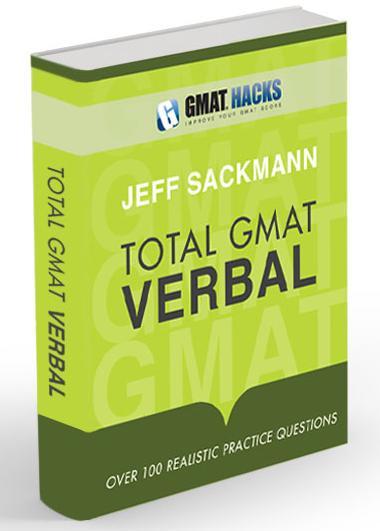
Bookshelf
|
|
Total GMAT Math Jeff's complete Quant guide, on sale now! |
|
|
Total GMAT Verbal Everything you need to ace GMAT Verbal! |
1,800 Practice Math Questions
Buy Jeff's books at Amazon.com

GMAT Official Guide, with IR
OG Math | OG Verbal
OG12 & Quant Rev solutions!
GMAT Question of the Day
Beginner's Guide to the GMAT
GMAT Hacks Affiliate Program

Recent Hacks

Categories
- General Study Tips
- Goals and Planning
- CAT Strategy
- The Mental Game
- GMAT Math Strategy
- GMAT Math Topics
- Mental Math
- Data Sufficiency
- Critical Reasoning
- Reading Comprehension
- Sentence Correction
- Analytical Writing Assessment
- Integrated Reasoning
- IR Explained
- Business School Admissions
- GMAT Prep Resources
- Practice Questions
- Total GMAT Math
- Total GMAT Verbal
- GMAT 111

How To Be Impressive
March 29, 2010
| You should follow me on Twitter. While you're at it, take a moment to subscribe to GMAT Hacks via RSS or Email. |
One of the biggest challenges of the business school application is figuring out how to stand out from the pack. The earlier you start thinking about this, the better off you'll be.
No matter how long your list of accomplishments, it's tough to present yourself as an outstanding candidate unless some of the items on that list are unique. Expect that much of your competition also successfully managed a team within a large corporation or served as president of a student society as an undergrad.
This challenge is why a recent article by Cal Newport caught my eye. He writes about "the psychology of impressiveness." While he focuses on helping high school students get into college, much of his advice applies to you as well.
What is perceived as impressive isn't always the accomplishment that requires the most skill, brains, or effort. It may come about via a series of accidents. Cal writes:
...to evaluate a person's accomplishments, we imagine ourselves attempting the same feat, allowing your own capabilities to provide a convenient benchmark for assessing others'.
In other words, if an adcom reads your application and thinks, "Hey, I could do that!" you might be in trouble. On the other hand, if the response is, "Wow--how did she do that, and all before her 26th birthday?" you're on the right track.
Cal puts it another way, even more succintly:
The Failed Simulation Effect
Accomplishments that are hard to explain can be much more impressive than accomplishments that are simply hard to do.
Between now and your application deadline, you may not be able to do anything new, impressive or otherwise. But you can still decide what to emphasize. The psychology of impressiveness provides great insights into what can look good on your application, so try to determine what looks impressive to outsiders, not just stick with what was most difficult for you.
About the author: Jeff Sackmann has written many GMAT preparation books, including the popular Total GMAT Math, Total GMAT Verbal, and GMAT 111. He has also created explanations for problems in The Official Guide, as well as 1,800 practice GMAT math questions.
 |
Total GMAT Verbal
The comprehensive guide to the GMAT Verbal section. Recognize, dissect, and master every question type
you'll face on the test. Everything you need, all in one place, including 100+ realistic practice questions. |